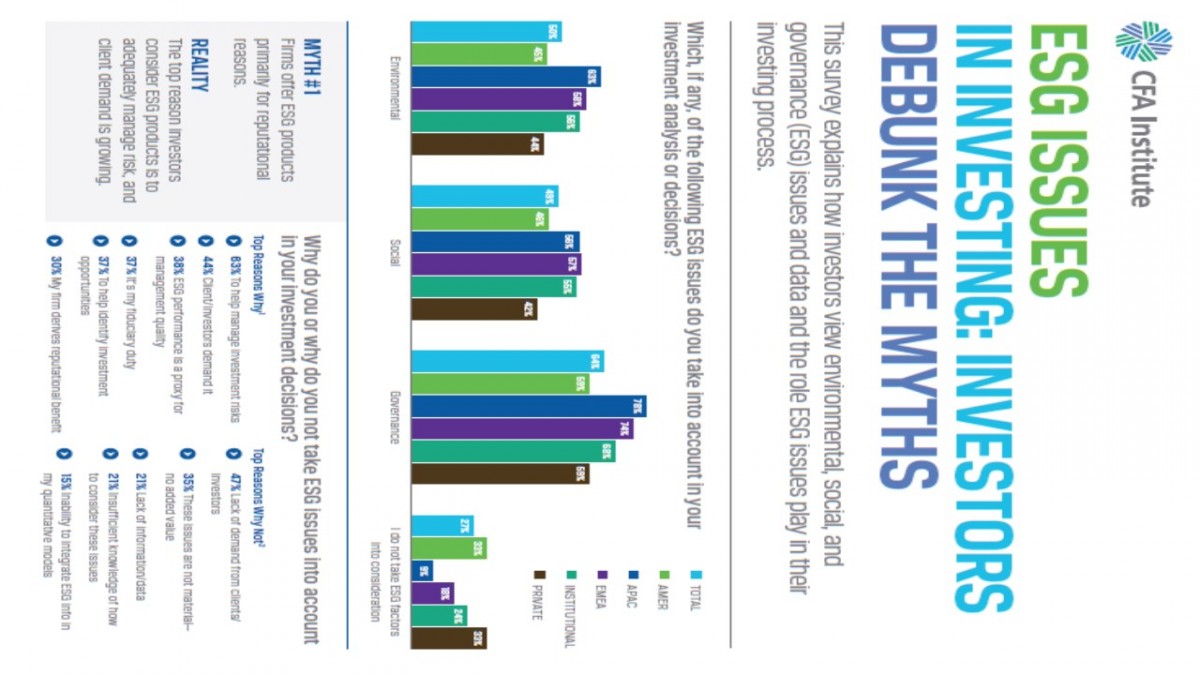engagement et activisme actionnarial Gouvernance normes de marché
Fonds d’investissement et ESG : les investisseurs institutionnels s’énervent !
Ivan Tchotourian 25 septembre 2017
En Angleterre, les investisseurs institutionnels font monter la pression sur les fonds d’investissement leur reprochant de ne pas assez prendre en compte l’environnement et le sociétal dans les choix d’investissement faits : « Consultants pressure pension funds over ethical investment » (Financial Times, 25 septembre 2017).
Twelve large investment consultants have joined forces to increase pressure on pension funds that are not taking environmental, social and governance (ESG) factors into account when making investment decisions.The group of consultants, which includes the big three of Willis Towers Watson, Mercer and Aon Hewitt, advise on close to £1.6tn of pension and insurance assets in the UK alone and have huge influence over the investment decisions of asset owners. They have signed a letter agreeing to issue briefings, hold training sessions and advise pension funds about responsible investment after a warning from the UK pensions regulator this year.
According to the regulator, savers face long-term financial risks because trustees are failing to take climate change, responsible business practices and corporate governance into account when making investments.
À la prochaine…
Ivan Tchotourian
autres publications normes de marché
Prise en compte des critères ESG : les mythes s’effondrent
Ivan Tchotourian 18 septembre 2015
Bonjour à toutes et à tous, intéressante étude publiée à la mi-août par l’IRRC Institute (ESG Issues in Investing: Investors Debunk the Myths) selon laquelle : « Almost Three Quarters of Investment Professionals Use Environmental, Social & Governance Information When Making Investment Décisions. New CFA Institute survey highlights board accountability, human capital and executive compensation as important issues ».
Voici le bilan :
- Risk evaluation: Sixty-three percent of survey respondents said they consider ESG in the investment decision making process to help manage investment risks, 44 percent say that their clients/investors demand it and 38 percent said ESG performance is a proxy for management quality.
- Top three issues in decision-making: Survey respondents ranked board accountability, human capital, and executive compensation as the issues most important to investment analysis and decision-making.
- Regional breakdown: A high proportion of CFA Institute members in the Asia-Pacific region considered ESG issues (78 percent), followed closely by members in the Europe, Middle East, and Africa (EMEA) region (74 percent). Respondents in the Americas region were the least likely to use ESG information in their decision-making process, but, even there, a solid majority (59 percent) do use ESG factors.
- ESG integration in the investment process: Fifty-seven percent of respondents integrate ESG into the whole investment analysis and decision-making process, while 38 percent use best-in-class positive alignment; 36 percent use ESG analysis for exclusionary screening.
- ESG disclosures: Sixty-one percent of survey respondents agreed that public companies should be required to report at least annually on a cohesive set of sustainability indicators in accordance with the most up-to-date reporting framework. In addition, 69 percent of these respondents say ESG disclosures should be subject to independent verification. Furthermore, of these, 44 percent believe that verification at a high level of assurance, similar to an audit, is necessary. Another 46 percent believe limited verification, or a lower level of assurance, is necessary. When this group was asked how much should be spent on independent verification, responses varied from 10 percent to 100 percent of the cost of an audit of financial statements.
À la prochaine…
Ivan Tchotourian
